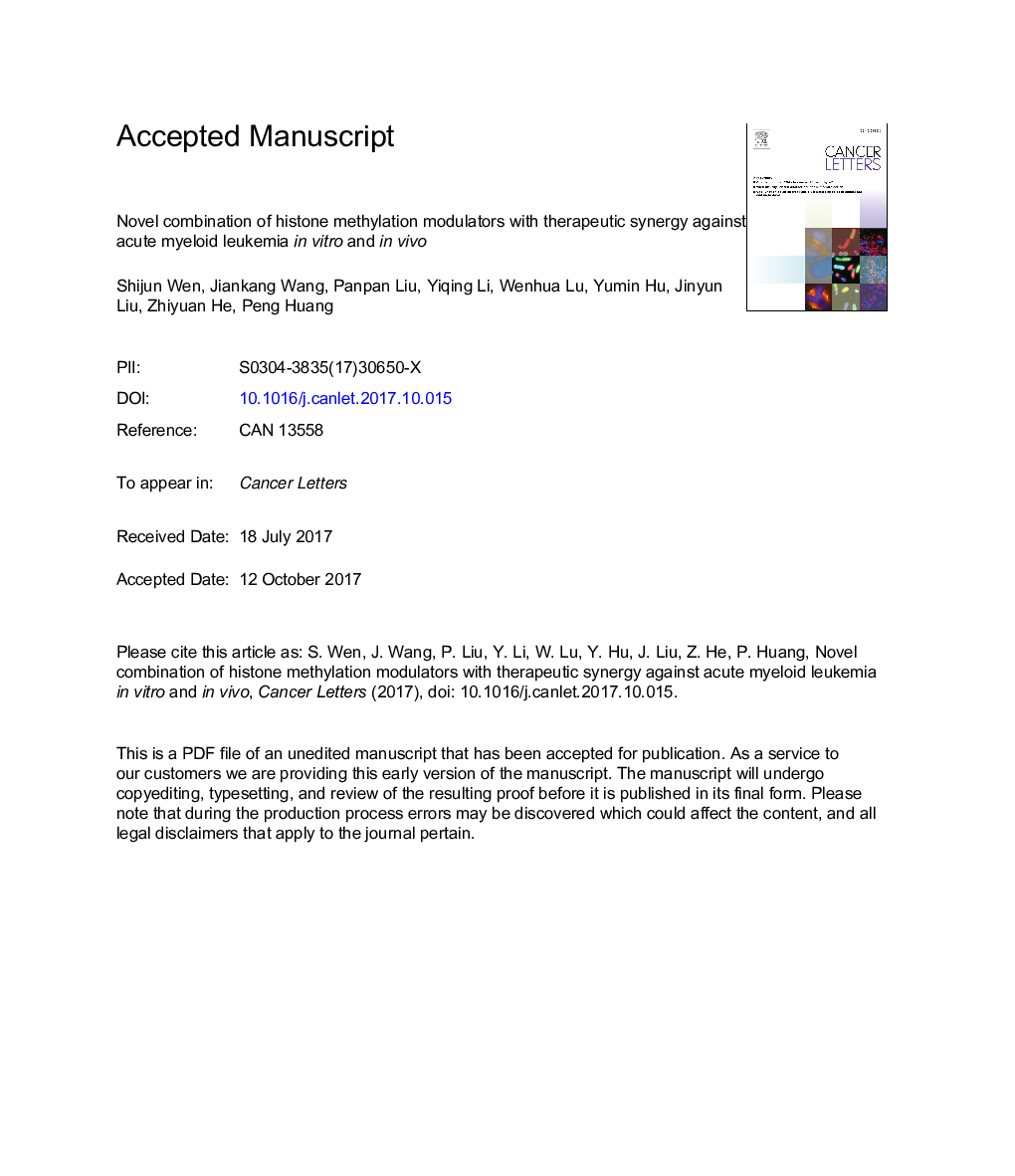| Article ID | Journal | Published Year | Pages | File Type |
|---|---|---|---|---|
| 8434993 | Cancer Letters | 2018 | 32 Pages |
Abstract
Acute myeloid leukemia (AML) is a hematological malignancy with rapid disease progression and often becomes lethal without treatment. Development of effective new therapies is essential to improve the clinical outcome of AML patients. Enhancer of zeste homolog 2 (EZH2) and lysine specific demethylase 1 (LSD1) play important roles in epigenetic regulation and their altered expressions have been observed in cancer. Although EZH2 and LSD1 have opposite histone methylation functions, we found that both enzymes were paradoxically up-regulated in AML cells. Importantly, a combined inhibition of EZH2 and LSD1 resulted in a synergistic activity against AML in vitro and in vivo. Such synergy was mechanistically correlated with up-regulation of H3K4me1/2 and H3K9Ac and down-regulation of H3K27me3, leading to a decrease of anti-apoptotic protein Bcl-2. These epigenetic alterations also compromised the mitochondrial respiration capacity and glycolytic activity and resulted in ATP depletion, a key event contributing to the potent cytotoxic effect of the drug combination. Taken together, our work identified a novel therapeutic approach against AML by combining two small molecules that inhibit different histone methylation-modulating proteins with apparently opposite enzyme activities. Such a new drug combination strategy likely has significant clinical implications since epigenetic modulators are currently in clinical trials.
Related Topics
Life Sciences
Biochemistry, Genetics and Molecular Biology
Cancer Research
Authors
Shijun Wen, Jiankang Wang, Panpan Liu, Yiqing Li, Wenhua Lu, Yumin Hu, Jinyun Liu, Zhiyuan He, Peng Huang,
